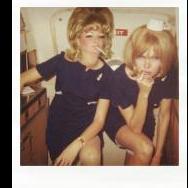-
Posts
15,487 -
Joined
-
Last visited
-
Days Won
4
Content Type
Profiles
Forums
Events
Blogs
Everything posted by AllenLowe
-

LF: Roach/Levey Drummin' The Blues
AllenLowe replied to Tom 1960's topic in Offering and Looking For...
some of these are CD versions: https://www.discogs.com/sell/list?master_id=789464&ev=mb -
I think the song Alfie (not to be confused with S.R's Alfie's Theme) is one of the best songs ever written; multi-sections yet all unified musically; complicated yet accessible:
-
I love older music, and I love playing older music, though I have some very specific ideas of how it should be done. There are, I think, two ways to go. From a revivalist perspective you've got to play the hell out of the music; take, for example, Jon-Erik Kellso, one of the great trumpeters of our time, who gets so inside the music that there is no creative distance between his playing and the song. For me, the way to go is to deal with the spirit and the energy of the original source and try to find an alternative way in; I note that there has been a recent recorded tribute to James Reese Europe, though to my ears it is done badly, with a deadness that comes from trying to do a literal re-creation. For our upcoming CD In the Dark I composed a piece as a parallel to what I hear as Europe's way of playing, an attempt to harness that incredible band's amazing energy. I think I can say, immodestly, that we have succeeded, in a way that puts us way in advance of anyone else today (there have been other, older, approaches, which have used something closer to the original arrangements). For our thing, which I call Castles in the Sand, I allowed for "free" improvising, within certain felt constraints, and I am very proud of it. I can't get the New York Times to acknowledge my existence these days (they recently wrote about the recent re-creations by someone else) - but here it is, and I challenge any other contemporary approach to get closer to the spirit of this old and amazing music: (and you can all order this stuff, it will be out within the month):
-

Amazing Bud Powell - Japanese CD with 16 or so Tracks
AllenLowe replied to Teasing the Korean's topic in Discography
I honestly don't know. -
I am reading Koloda and I have to admit I like it. The writing seems fine, but if there as many errors as claimed, that's troubling, but I would like to see some specifics. If he depends too much on other sources, well, that's a problem I see more often in academic books. But, as I said, I would like to know what the errors are, as "disaster" is a pretty strong condemnation.
-

Amazing Bud Powell - Japanese CD with 16 or so Tracks
AllenLowe replied to Teasing the Korean's topic in Discography
one important thing to note - the 2 volumes of the Amazing Bud Powell were reissued AGAIN, some years back, with significantly better sound. Those are the ones you should own. The difference is dramatic - (same thing, BTW, with the Monk Bluenotes) -
I am going to slide in here and say the best, most soulful, bari player today is Lisa Parrott. She's also a great alto player.
-
-

On Thelonious Monk
AllenLowe replied to gvopedz's topic in Jazz In Print - Periodicals, Books, Newspapers, etc...
I should mention that I never liked the Hall Overton arrangements; Overton was a great man, but those ensembles are just too dull and conventional sounding to my ears. -

On Thelonious Monk
AllenLowe replied to gvopedz's topic in Jazz In Print - Periodicals, Books, Newspapers, etc...
she was referring to the Minton's days, and if I had to guess where I saw it, it might have been Hear Me Talkin' To You (which is very suspect as a source, now that I think of it). But I really am unsure. -

On Thelonious Monk
AllenLowe replied to gvopedz's topic in Jazz In Print - Periodicals, Books, Newspapers, etc...
the first person I saw quoted as saying Monk could play like Teddy Wilson was Mary Lou Williams. Not sure where I saw it, however. -

On Thelonious Monk
AllenLowe replied to gvopedz's topic in Jazz In Print - Periodicals, Books, Newspapers, etc...
that whole piece in the Baffler is riddled with errors; I sent them a message offering to make corrections but they did not respond. I've always felt that the whole "he could play like Teddy Wilson" etc thing was a myth. I have really heard nothing that shows this. From the beginning he plays like Monk. -

Full Moon Moan (from America: The Rough Cut
AllenLowe replied to AllenLowe's topic in Offering and Looking For...
Kresten's a great guy and wonderful drummer. -

Full Moon Moan (from America: The Rough Cut
AllenLowe replied to AllenLowe's topic in Offering and Looking For...
thanks -
A few years back I caught some flack here for criticizing a very good musician (Allison Miller) for having no clue about playing in a so-called funky manner. Truthfully I find that both contemporary jazz audiences and jazz musicians rarely have a clue about the deep blues. Mindful of the belief that "those who can.....," since I also teach and write about that history, I wanted to submit the following from our upcoming CD, America: The Rough Cut. This is how you do it, not with cliches and dopey vamps, and a lotta flat thirds and bad drumming in search of a backbeat. The old blues players weren't slick or playing scales, they were looking deep inside themselves and letting the feeling out. I offer this, Full Moon Moan, based on some early blues-like forms which held a single chord while melodically slipping and sliding through the standard old-time blues changes. This is myself on tenor, Ray Suhy guitar, Alex Tremblay bass, and Krestin Osgood drums. if you like it, buy the CD:
-
great pianist - just to correct, other sources say he died in 2003.
-
His widow Carol has called me a few times for some remastering advice for his old label (was it Improvising Artists?). She lives up in Cherry Valley New York near the Baseball Hall of Fame.
-
In my current cognitively-challenged state, it is possible that I was actually remembering reading the one autobiography twice.
-
I only went to one concert at Symphony Hall, in the '70s, and the acoustics were very difficult, though the recordings I've heard that were made there (like Armstrong's) are pretty clear. This of course is rough, but everything is there.
-
Paul and I were friendly acquaintances, he used to call me 3 or 4 times a year to talk. I loved the guy; he was a bit of a know-it-all, but he really did know it all. I've read both bios. I was most impressed by the fact that at certain key points of his career he took the path least likely to lead to work and money, but succeeded each time. He also told me some funny stories about working with Hawk and Rollins, that Sonny was very consciously trying to lose Hawkins, who asked Bley, on occasion, to cue him in for his solo.
-

This is Gary McFarland Documentary - Free Thru December 31, 2022
AllenLowe replied to Teasing the Korean's topic in Artists
got it thanks -

This is Gary McFarland Documentary - Free Thru December 31, 2022
AllenLowe replied to Teasing the Korean's topic in Artists
can't get to it; when I click the link it says "video is private." -
Percy talked about Coggins a lot; at the time Coggins was playing in a place down in the village, where I only caught him once. His late work was terrific, very original. those notes are formidable; when I first sent Devilin' Tune out for one of its many rejections, one editor who turned it down complained I didn't have enough footnotes, though I had hundreds. It was maddening. Aidan, as I've said, is really smart. 700+pages is a lot. I have to admit that in books like this I tend to skip the sections on the early years, which I think often are dragged down by too much research. But he clearly knows the way around this subject (though I would avoid one source cited, Farah Jasmine Griffin, like the plague. She's a classic tenured know-nothing).
_forumlogo.png.a607ef20a6e0c299ab2aa6443aa1f32e.png)

